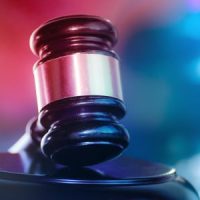Federal Law Drug-Free School Zones in Virginia

Drug-free school zones are much like sex offender registration laws. The drug-free enhancement is designed to deter trafficking and other such activity near schools. But there’s almost no evidence that the deterrent is effective. Nevertheless, in addition to the state law prohibition, some federal prohibitions could apply as well.
These prohibitions are significant because they transform state crimes into federal crimes. The federal criminal system is much tougher on defendants, mostly because probation is usually unavailable and judges have little sentencing discretion. The good news is that since federal drug-free school zone violations are essentially drug trafficking charges, the same basic defenses are available. Therefore, a well-prepared Leesburg federal crime lawyer normally successfully resolves these cases, usually without going to court.
General Federal Laws
Over the years, especially since the 1980s, Congress has repeatedly supplemented the core offenses under the Controlled Substances Act with several additional offenses.
Mandatory minimums for drug crimes are largely a thing of the past. But school zone enhancements carry increased maximum penalties, when the crimes are committed under certain specified circumstances. For example, section 21 U.S.C. provides that the penalties for manufacturing, distributing, and possessing with intent to distribute are doubled or tripled when the offense is committed within a specified distance of a school or other facility regularly used by children.
Under federal law, the affected areas include illegal drug sales or other transfers on, or within 1,000 feet of, real property comprising:
- Public or private elementary, vocational, or secondary schools,
- Public or private college, junior college, or universities,
- Playground, or housing facilities owned by a public housing authority, or
- Within 100 feet of a public or private youth center, public swimming pool, or video arcade facility.
Note that many public housing units are in private apartment complexes. Frequently, builders set aside a few units for low-income residents.
NCLB
The controversial No Child Left Behind Act includes the amended and reauthorized Safe and Drug-Free Schools & Communities Act (SDFSCA) as Part A of Title IV-21st century schools.
The No Child Left Behind Act authorized funds for SDFSCA program, which is the federal government’s major initiative to prevent drug abuse violence in and around schools. As part of the SDFSCA, Congress allocated millions to school districts to help them establish programs to prevent the use of alcohol and other drugs, but there are no accountability standards to accompany the money.
The purpose of the SDFSCA is to support programs that prevent violence in and around schools, prevent the illegal use of alcohol, tobacco, and drugs, involve parents and communities, and are coordinated with related Federal, State, school, and community efforts and resources to foster a safe and drug-free learning environment that promotes student academic achievement.
Due primarily to an ongoing lack of research supporting any of these efforts being an effective deterrent to crime, as mentioned above, Congress recently eliminated several programs administered by the Office of Safe and Drug-Free Schools. However, several others remain in place.
Count on a Hard-Working Loudoun County Lawyer
There’s a big difference between an arrest and a conviction in criminal law. For a confidential consultation with an experienced criminal defense attorney in Leesburg, contact Simms Showers, LLP, Attorneys at Law. Virtual, home, and jail visits are available.
Source:
ed.gov/about/offices/list/osdfs/index.html
